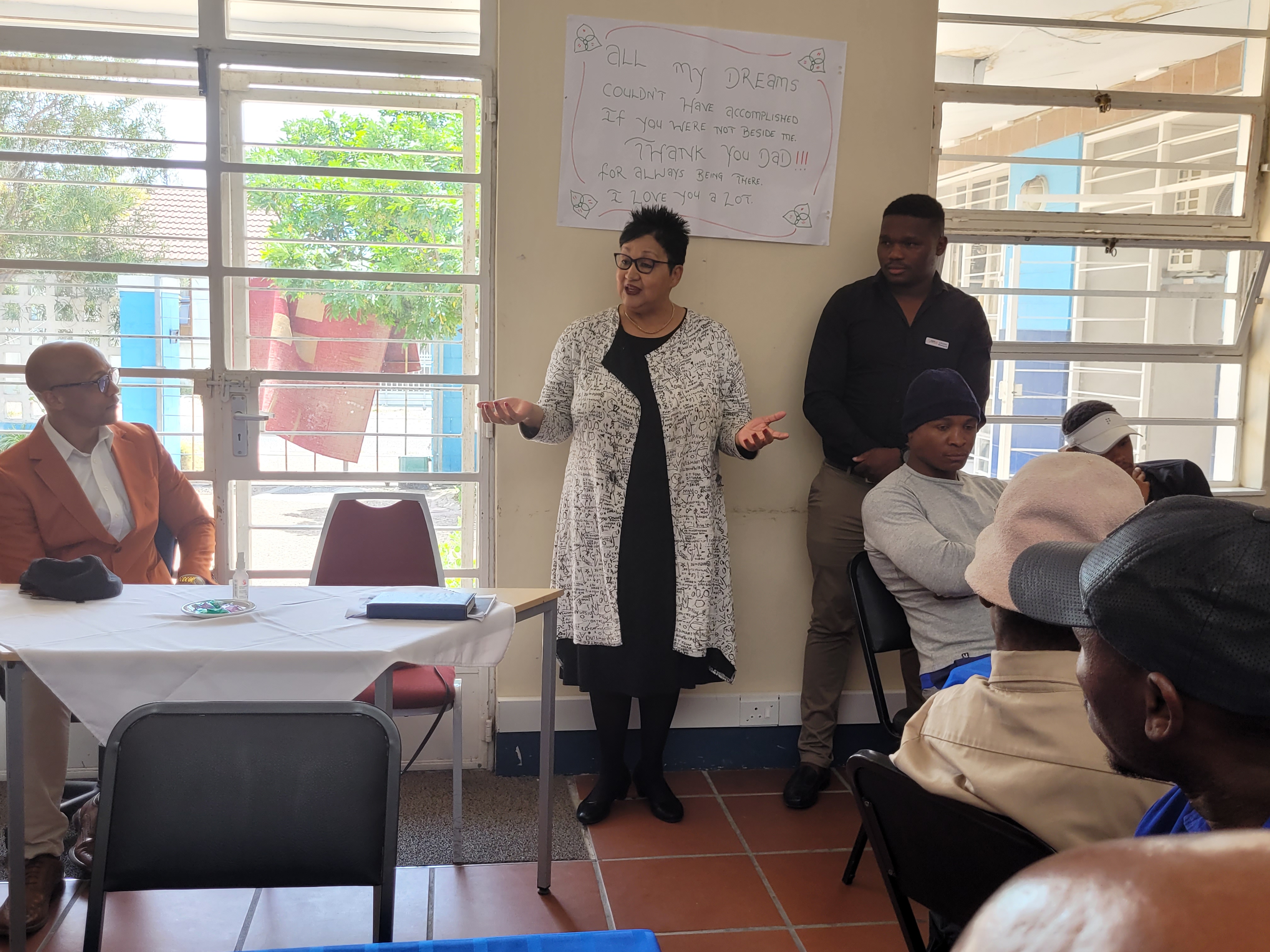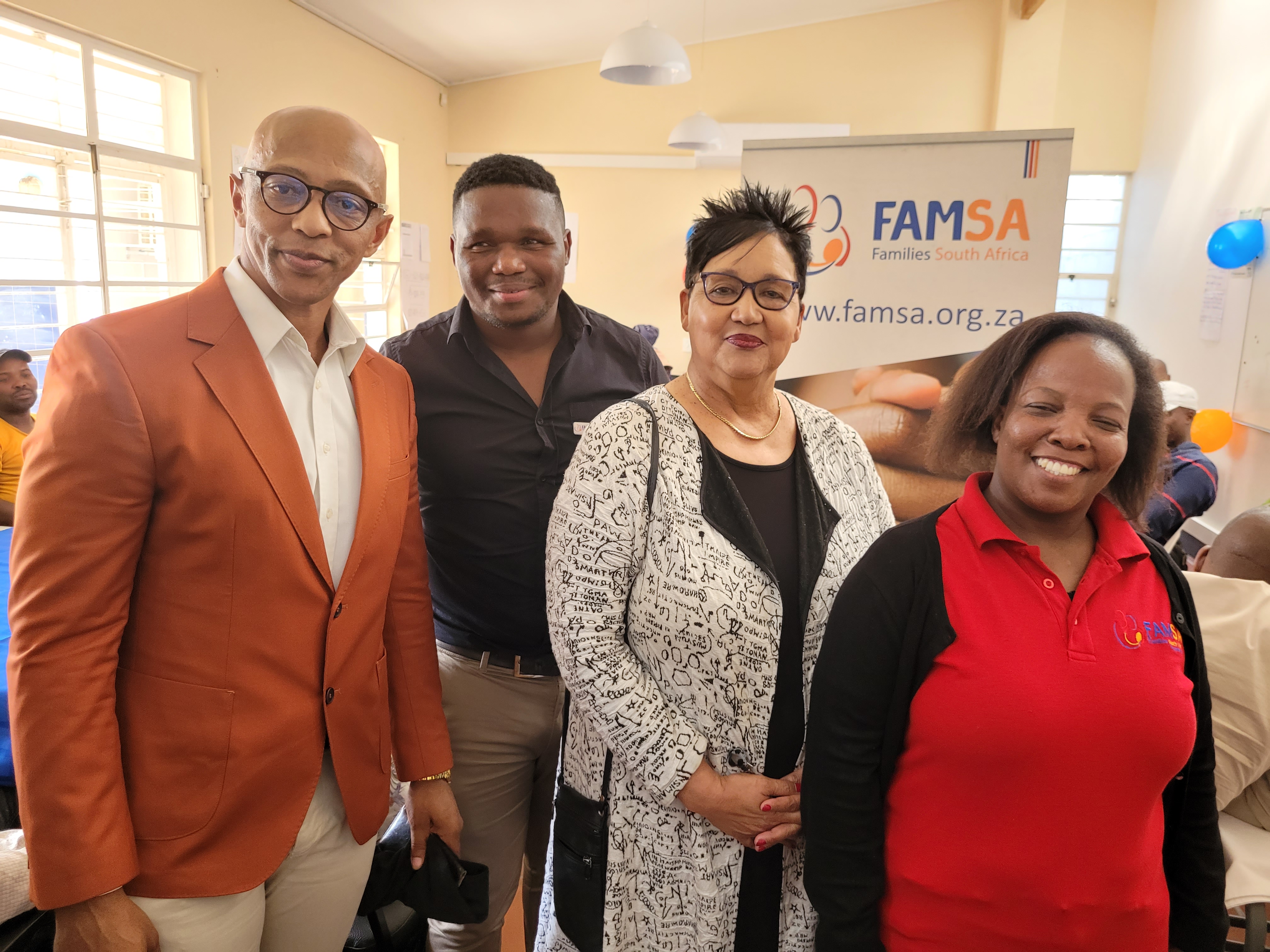
News
International Men’s Day: Solutions start with one conversation
International Men’s Day is commemorated on 19 November, to celebrate the positive values men bring to the world, their families, and communities.
Minister of Social Development, Sharna Fernandez, wishes to use this day to highlight the important role men and boys play in ending the scourge of Gender-Based Violence, especially with 16 Days of Activism For No Violence Against Women and Children a week away. The Minister says society also needs to realise the trauma men face and how this affects behaviours.
Minister Fernandez visited Families South Africa (FAMSA) in Khayelitsha, a NPO funded by the Provincial Department of Social Development (DSD). Here she had a discussion with men who gather to discuss problems they face and receive support from a social worker as part of FAMSA’s Fatherhood Programme.
DSD funds 16 organisations through its Families Programme, allocating over R450 000 to these NGOs.
“Some men are broken, wounded, sad, some are unhappy. We want to create safe spaces and platforms where men can have these discussions. Those of you in the room, you can start a support group. You can change the world, one room, one conversation at a time,” Minister Fernandez told those gathered.
This is exactly what some men who have gone through the Fatherhood Programme are doing.
Xolani Mcoyama started his own NPO, Khuseleka, where he has reached more than 300 men in Mfuleni: “I came to FAMSA five years ago. In that time, I lost my partner and I had two small children. My in-laws came and took the children because they said I can’t look after them because I am a man. I then came here and underwent counseling. I thought that I should not keep the information that I learnt to myself. I contacted FAMSA so we could have similar sessions at my church. I’ve also got a programme where we do school interventions, where men go talk to boys about gang violence.”
Several other men shared their testimonies of changing their behaviours after going through the programme, saying more sessions need to take place.
Social worker, Chuma Mangxa, who works with the men, says these types of interventions are life-changing and crucial in addressing violent behaviours, especially in a violence-ridden area like Khayelitsha: “Because of all the GBV incidents in our country, we decided let’s have this programme to find a solution to the problem we are facing. Men need an opportunity to speak out. Sometimes the only way they then express themselves is through shouting or being violent. In the Fatherhood Programme, we discuss many issues like fathers’ parenting styles. A lot of men think the responsibility for parenting is with their wives. We’re trying to equip each other to understand it’s not only up to the wife to run the home, we, as men need to contribute.”
“We have identified that men play a vital role in our society, most of the time as men we are always associated with bad things. When you talk about GBV, it’s usually the men who are the perpetrators. That’s why we need programmes like these. To discuss violence and how to root it out,” says Thembekile Kwakwini, assistant director of DSD’s Children & Families unit.
Minister Fernandez says men who are victims of abuse are often too scared to speak out, for fear of ridicule, but she urges these individuals to seek help: “If there aren’t any support programmes in your community, due to a lack of resources, then be the change you want to see. Start your own support group. Let’s get these conversations going, so we can change behaviours and eradicate the violence that is so prevalent in our communities.”
Monique Mortlock-Malgas
Media Liaison Officer
Office of MEC Sharna Fernandez
Department of Social Development
Tel: 084 775 2975
E-mail: Monique.Mortlock@westerncape.gov.za
Website: www.westerncape.gov.za





